How to Help A Loved Who Is Dying
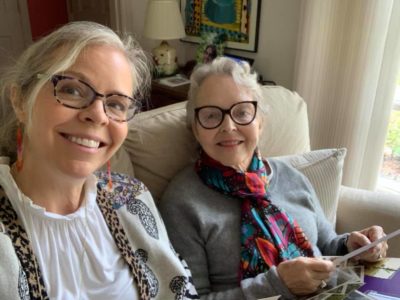
(photo above: My mom + me going through her favorite letters and photos in September 2020)
You know when you go to a self improvement workshop and they ask you to share your greatest fear? Well, mine was this: When I die, I feared I wouldn’t be able to navigate the “Bardos of Death” (those intermediate states between death and before reincarnation that the Buddha spoke about) very handily and I’d end up making a wrong turn.
I was very concerned that I would fail to die correctly.
Maybe it was my peculiar anxiety that inspired me, but I’ve felt called to learn more about the work of death doulas (people who help families and their loved ones at the end of life much like birth doulas help at the beginning of life) and the dying consciously movement.
I read dozens of books. everything I could get my hands on about death and dying from Elizabeth Kubler Ross to Ram Dass. I learned a very detailed and intricate Incan spiritual method to aid a dying person to separate their spirit from their body around the time of death. I wrote my own obituary. I practiced dying consciously multiple times. I went to death doula camp. The camp was in Maui, which is not a bad place to play dead.
Though it may sound dreary, reading through all of these books and attending all of these training courses was richly rewarding. It turns out that the people who embrace death and dying are some of the most sensitive, fascinating and hilarious people. And, I discovered that thinking about my own death a lot also caused me to appreciate the life I have in a much deeper way.
Then, out of the blue, my precious, non-smoking mother was diagnosed with Stage IV lung cancer.
My mom wasn’t interested in talking about dying. She wanted to live and got busy figuring out how to do that. There was a miracle drug that bought her more time than any of us could have imagined. And she and my dad traveled and made special trips to see family and friends. She went to book club, got the vote out, knitted and tended all her people lovingly. We had dozens and dozens of family dinners. And it all went way too fast. My mom and I did talk about death, eventually. She said she liked the idea of playing Sandi Patti music when she was on her deathbed and that she only wanted family plus a few dear friends around. We cried together. It was a relief, for me, to know just a little about what she might want.
Eighteen months later, the chemo stopped working. My mom bravely decided that Hospice might be a good idea. When I asked her how she was feeling about all of it, my amazing mom told me that she wasn’t afraid to die. At all. But she made it clear that the “saying goodbye to all of us” part was breaking her heart. And ours.
The garden bells rang sweetly in the apple tree as the October sun beamed in through the windows. My Dad and I sang a song that Sandi Patty made famous as I strummed my ukulele. Then, choreographed by invisible instructors, my sister took hold of one of her hands and I took her other as my mom, in her pure beauty and strength, breathed her way out of this world.
Getting to witness her end-of-life process was a huge gift to me. I didn’t want her to die and I miss her terribly, but her death taught me one important thing that I urgently want you to know.
Though I had acquired all this “knowledge” about how to help someone die consciously, I did not need it.
And, it was quite obvious to all of us that my mom didn’t need it either.
And neither do you.
The most important things I learned from my mom’s death are these:
No. 1 YOU DON’T NEED TO KNOW ANYTHING SPECIAL
TO HELP SOMEONE YOU LOVE DIE.
Death is natural. As poet Lara Daciuk O’Connor says, “Your body knows what to do, the same as when you were born”.
You can be a huge help to your beloved person by just being present and listening. That’s it. No chakra spinning, sage burning, remembering a complex or nuanced sacred spiritual procedure or special anointing oil necessary (unless you want to of course).
You, dear human, are a walking talking altar of sacredness.
Each of us is sacredly capable, in our own funky way.
Just breathing and being present will be a huge gift to your beloved.
And, as you are present with them and with yourself,
No. 2 YOU WILL BE GUIDED.
Ideas will pop into your head. Intuitive instructions. Tiny actions to take. Words to say. Or, silence to hold. Songs to sing. Prayers to pray. Candles to light. Poems to read.
Trust in your beloved’s ability to die in the best way possible and in your ability to assist them in that.
So that’s what I want you to know.
Now, in case you have extra time and on your hands. I will share with you what I formally learned in my nearly three year exploration into the conscious dying movement. There are a few ingredients that seem to be part of a “good death” and if you can recognize your opportunity to facilitate these things- you will also be helping!
But remember, you don’t REALLY need to know anything— you are ALREADY an altar of sacredness and, as such, are fully equipped to be helpful.
By simply breathing and being present you will be doing everything necessary.
Here’s the quick and dirty summary that you can digest (and share with the other parts of your loving team of caregivers if you’ve got them!).
Cultivate a calm and serene space for your beloved.
If you have ever read the Tibetan Book of Living and Dying by (and I hope you do!), you’ll understand that the reason the Buddha encouraged us to meditate daily is so that we can become helpers to those who are dying. It’s not very easy to say goodbye to the places and people we love and a peaceful atmosphere helps in the “letting go” process. What better motivation for a meditation practice than to know that you are preparing yourself to bring ease to your beloved’s last days or hours?
Invite them to review their life.
It’s a good idea, if time allows, to encourage your beloved to process their life experience. It will probably start to happen spontaneously, but you can support them by asking them to tell you more about their life. My mom wanted to go through old photos and tell stories. She had boxes of letters which we read out loud. We looked at all the old photo albums of her trips and our family vacations. She told us wonderful stories about her first loves and we laughed at her many serious and gently demanding “Dear Santa” letters from her childhood. She talked about good times and also the things that had disappointed her or that she wished had gone differently. This review naturally leads into the next ingredient of a good death..
Support them in tending to relationships, the difficult ones and the cherished ones:
Is there somebody they need to communicate with? When you can help a loved one to make the phone calls or to arrange the meeting via zoom (or in person), you will be helping them make peace for themselves as well as the other person. My mom was exhausted, but made it clear she wanted to see and connect with certain people and we helped her make that happen. My mom also made several important phone calls in those last weeks to settle any uneasiness she felt in certain relationships. To say what she needed to say. To say I love you. She had done a lot of personal work and didn’t have much undone, but there was a peace that settled on her once she had finished these important tasks. .
They might be fearful about what is to come, help them find peace.
Though my mom had more spiritual faith than anybody I know and believed good things about what happens after death, it was still hard. As death drew near, she experienced a few panic attacks. We listened to her and we helped her communicate this to her health care team and they provided medications to which helped soothe her anxiety. Another thing she did was breathe mindfully. She remembered that she knew how to do this and it helped her a lot.
Avail yourself and your loved one to Hospice Services whenever possible.
Often these services are at no cost to the family (as of this writing it is fully covered by Medicare) and they can make a world of difference. Ours provided door delivery of every medical supply, a hospital bed and everything else we needed to take care of my mom. This freed us up from so many errands to just “be” there. Nurses visited weekly and then daily as needed. They taught us how to give pain medications and we could call them twenty four hours a day if we needed to.
Take good care of yourself.
Drink water, take small naps and be sure to eat nourishing food. It’s easy for caregivers to forget their own needs and get sick. Because your role is important, you must take your self-care seriously.
One final piece of advice comes from Dame Cicely Saunders, the founding “mother” of Hospice. She says that to be helpful to a person who is dying, you must look at them as if you know what it is like to be dying. Try to put yourself in their shoes and respond from that place. You don’t know, of course what it’s like for them. You cannot possibly know….
But, when you look into their eyes, look back at them like you do understand.
You might still be wondering if I am still haunted by my odd fear of screwing up once I enter the sacred bardos of death? Experiencing my mom’s death has given me so much peace. Like birthing my daughter, death is a natural process. I know, deep down in my bones, that when it’s my time, it will be OK. I will know what to do and those around me will too.
In the meantime, I’m trying to meditate regularly, periodically review my life and tend my relationships. I’m remembering that whether I’m dead in 5 minutes or in 50 years, it’s good to be ready to die.
P.S. One of the most important things I learned in Death Doula Camp was that you can keep your loved one at home (or have your dead loved one’s body brought to your home from the hospital) for up to three days. It’s the law in all states and embalming is almost never required. We purchased some dry ice which we slid beneath her body. We had my mom home with us after death for forty eight hours and it was SO LOVELY. To see her. To talk with her. We dressed her in a flowery pale pink silk kimono and covered her body in flowers from her garden. A cosmic gardener goddess. I will never forget that special time we had with her body. Learn more about how to do all of this here.
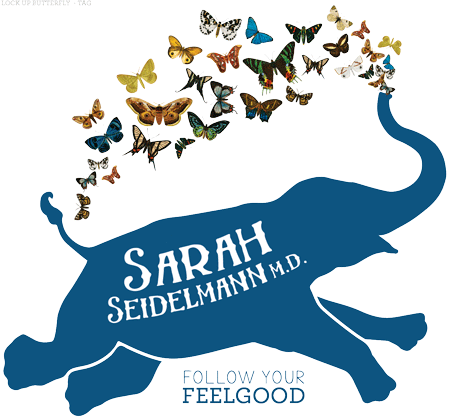
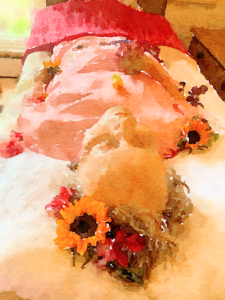



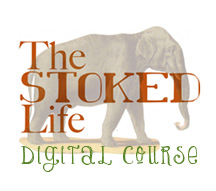
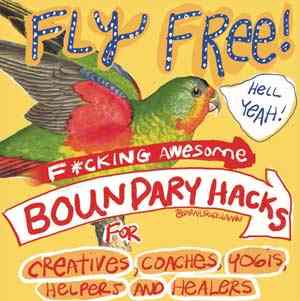
Well done…look forward to more of same
Thank you so much.
My husband died a little over 10 years ago and this resonates deeply with me.
Thank you for this beautiful message of love and hope.
Thank you so much dear Laura. Sending you much love in this season.
Thank you Sarah for sharing this and for being so open and vulnerable about a heartbreaking time in your life. My MIL is experiencing end stage cancer and we are all reeling. This was very grounding to read. Many thanks 🙏
Dear Kim- Im terribly late to replying. I am so glad to know that this post touched you. Much love, Sarah
Thank you so much for sharing. The timing was, as always, perfect. This is just what I needed to hear now.
Sorry Im so late in replying Claudia! I am so grateful you got what you needed!